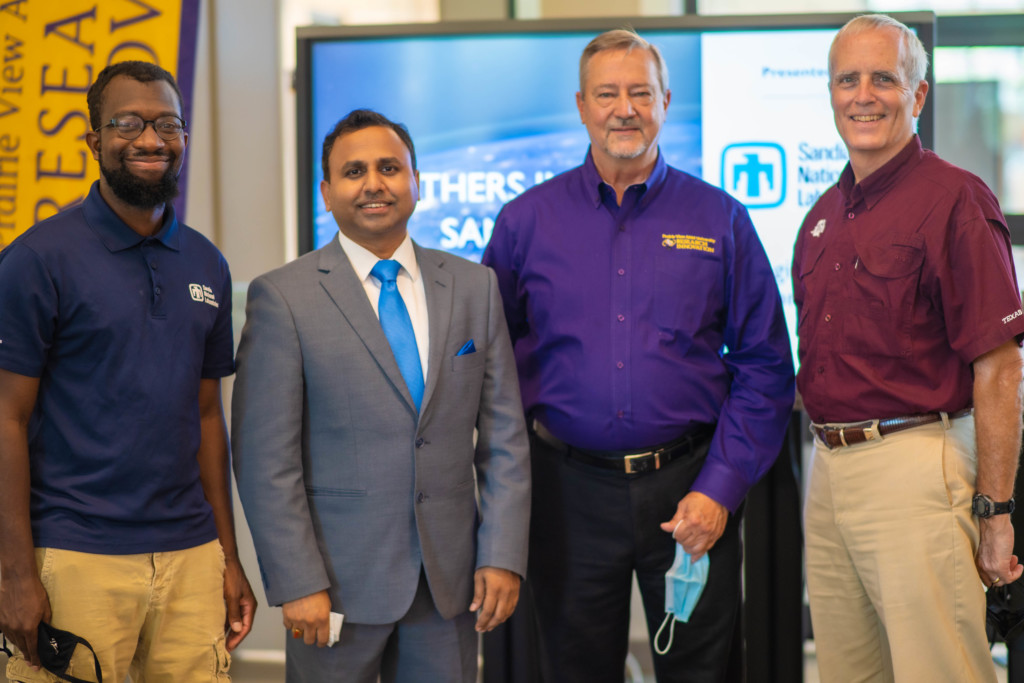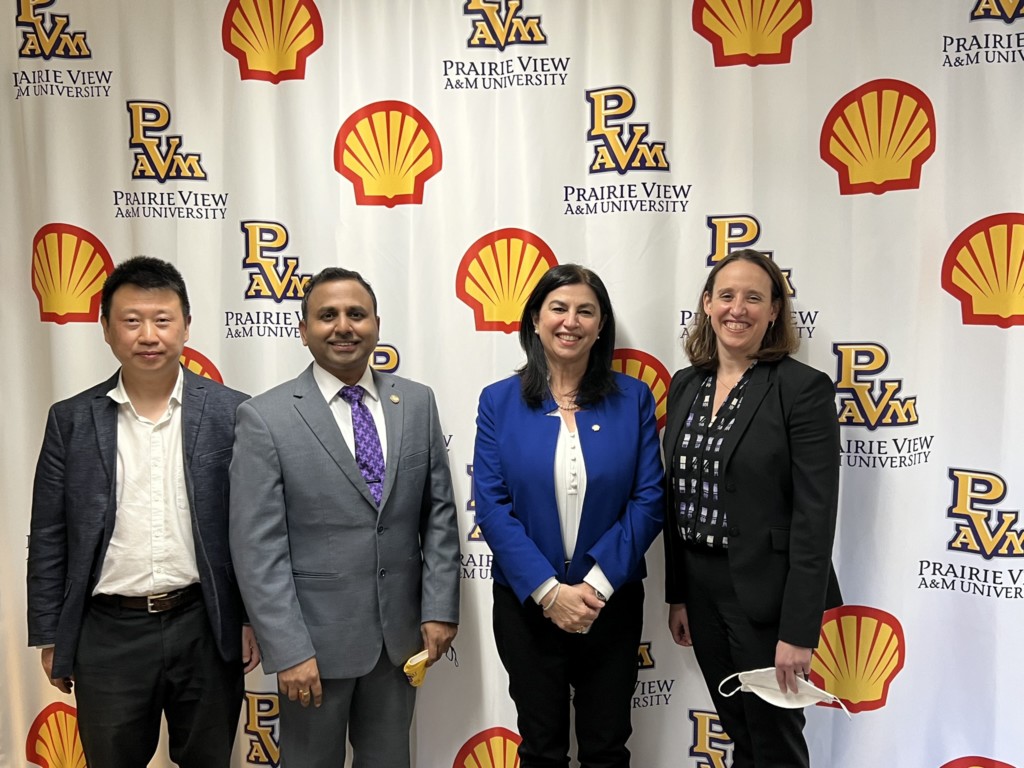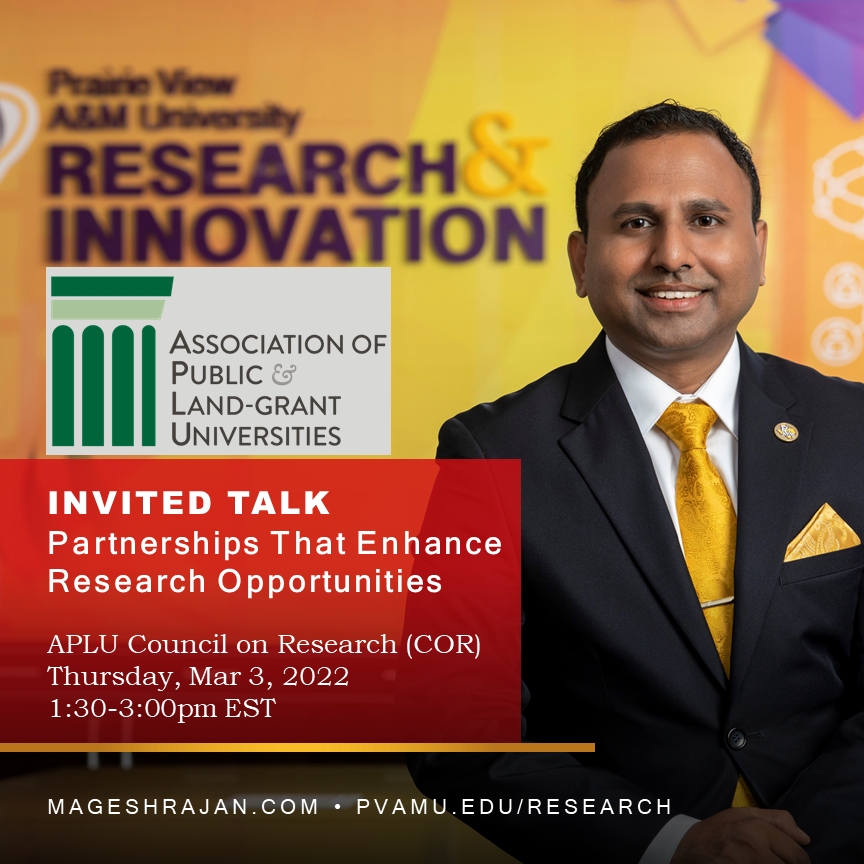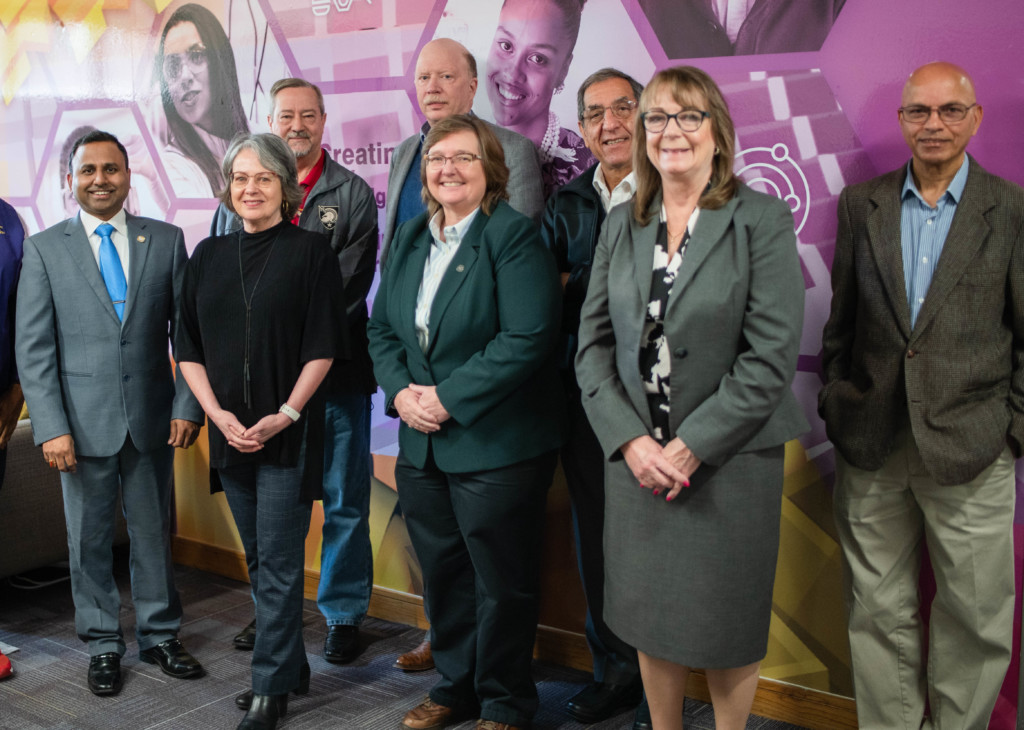Partnerships that Enhance Research Opportunities
In March, I took part in a unique webinar called the Conversation Series hosted by the Association of Public and Land-grant Universities (APLU) and its Council on Research (CoR). The APLU is a research, policy, and advocacy organization dedicated to strengthening and advancing the work of public universities in North America. Its membership consists of 244 public research universities, land-grant institutions, state university systems, and affiliated organizations.
The CoR is composed of the senior research and graduate officers: vice presidents for research and graduate deans. It provides a forum for the discussion of research development and management, research policies and regulation, budget strategies, faculty roles, graduate education, a research collaboration among universities and across sectors, and the importance of research to the overall mission of APLU member institutions. The group works closely with the Commission on Economic and Community Engagement (CECE) on issues related to intellectual property and technology development, and with the Council on Governmental Affairs in monitoring government legislation and regulations affecting campus-based research and graduate education.
The Conversation focused on Partnerships That Enhance Research Opportunities at HBCUs, Hispanic Serving Institutions, and Native Nations. Fellow participants included representatives from South Carolina State University, the University of Arizona, and the National Historically Black Colleges and Universities Alumni Associations Foundation.
I talked about the successes of PVAMU’s strategic partnerships achieved, despite the pandemic. They included:
- NASA (our ongoing partnerships)
- Los Alamos National Laboratory
- Sandia National Laboratories.
Combined, the Division of Research & Innovation raised $2M in funding across these three partnerships.
NASA
We have a long-standing relationship with NASA that includes using faculty research, as well as a student-funded program, called the Mentor Protégé program. With Johnson Space Center’s geographical proximity to PVAMU, the pandemic didn’t alter NASA researchers’ ability to mentor our students or collaborate with faculty. They have access to both throughout the year. Through Mentor Protégé, NASA provides the funding to our university where we manage, recruit the students, and fund the faculty, who are employed by the university. This program has worked out to be a great model, one we would like to replicate with other corporations, like Sandia National Laboratories.
Sandia National Laboratories
Sandia Labs came on board in 2021and created very similar partnerships where three to four faculty received $300-400,00 in research funding. Their projects also included components of students working alongside the faculty. Sandia Labs established year-long working relationships with faculty and students. During the summer months, faculty have the opportunity to be in the National Lab as faculty fellows. They are permitted to include their students in the summer experience. As a result, this continuity was established in the research experience and relationship without any programmatic breaks.

Panthers Invent 2021 sponsored by Sandia National Laboratories. Pictured: Joshua E. James, Sandia; VP Rajan; Bobby Melvin, Executive Director of ICEED, PVAMU; and Rodney Boehm, Director, TAMU Engineering Entrepreneurship
This relationship with Sandia also included interest in developing students into entrepreneurial approaches and business ideas and innovation. This led to the inaugural Panthers Invent, a 48-hour intensive design competition where teams of multidisciplinary students push their innovation, creativity, and communication skills. Sandia professionals also served as mentors for the students throughout the three-day competition. Therefore, Panthers Invent involved research, innovation, developing a talent pool for internship recruitment, and also demonstrated to our students and researchers how to cultivate a meaningful relationship and partnership that would be mutually beneficial. Over time, we raised $202 million in funding across these three partnerships in the last couple of years.
As an R2 Research Institution, strategic research partnerships are not only expected but also serve to demonstrate one’s effectiveness in securing additional funding opportunities with industries and federal agencies, as well as collaborations with other universities. I shared with the APLU attendees some details on the Texas A&M University (TAMU)-PVAMU research and innovation initiative.
Through the Panther-Research & Innovation for Scholarly Excellence (RISE) Grant Program, 30 PVAMU-TAMU faculty members received $300,000 for collaborative research.
During the webinar, I provided the mutually beneficial aspects of the $6M Shell-PVAMU research partnership between industry and higher education.

Haibin Xu, General Manager, Shell Global Academic Partnerships; VP Rajan; Selda Gunsel, Ph.D., Shell Global Solutions President; and Allison Falender, General Manager, Shell Bio Technology.
Through the Nature Bases Solutions Research Program, Shell engineers will conduct some of the studies right on our campus, which means faculty, research scientists, and students can reap the benefits of the partnership at Prairie View and in Shell labs.
CoR Conversations are monthly events for members to learn and discuss current events, policy actions, or any emerging issues, questions, or concerns. These events are every four weeks after. In 2022, the CoR Conversations are planned up to the CoR Summer Meeting. The calls are planned for at least one hour and at most 1.5 hours.
I invite you to learn more about APLU by visiting its website and exploring how it works with members—like PVAMU—to improve student success, advance and promote research and discovery to improve society, foster economic growth, and address global challenges.


